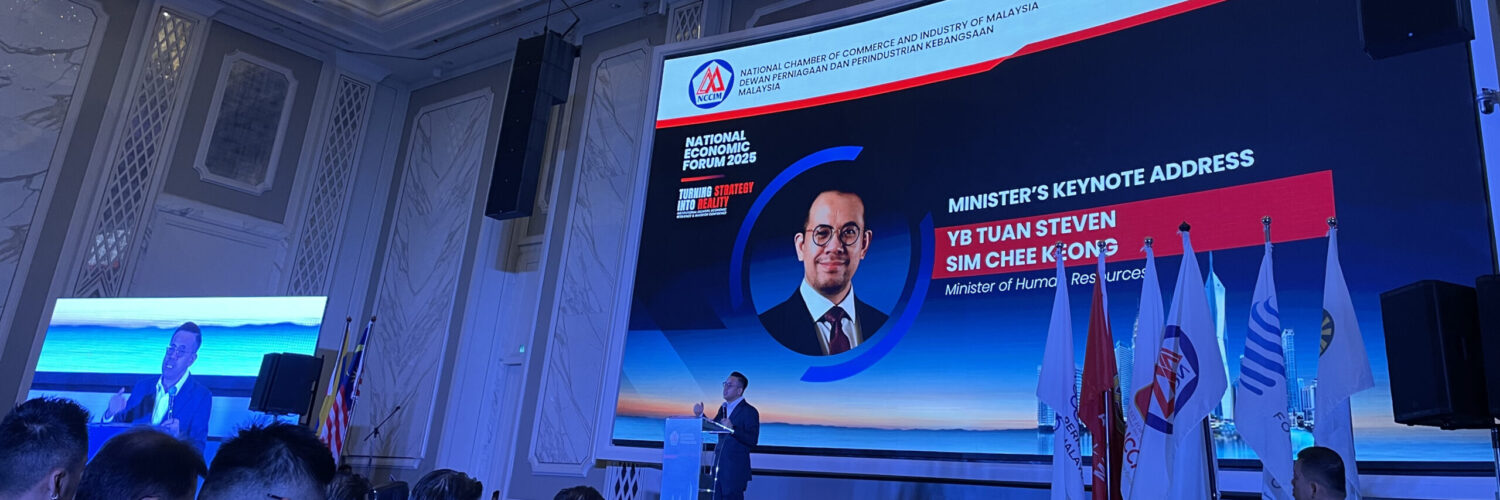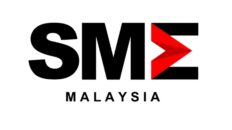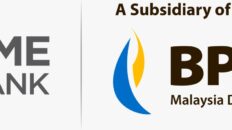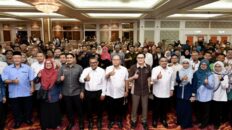By Aileen Anthony
Delivered by YB Steven Sim Chee Keong, Minister of Human Resources of the Ministry of Human Resources (KESUMA), the speech opened with an allegory from the Soviet era. Two friends, separated by state-imposed relocation, resorted to coded letters to communicate under the watchful eye of censorship—black ink for truth, red ink for falsehoods. Eventually, a letter arrives, entirely in black ink, describing a blissful life in Siberia. The only problem? “They don’t sell red ink.”
The story was more than a clever metaphor. It reflected the need to acknowledge a fast-evolving global economy—and the importance of embracing “red ink”: the willingness to build the skills required to enrich and evolve the economic model that will shape Malaysia’s growth trajectory.
“Business as usual would mean more businesses going out of business,” Sim said.
Malaysia, he argued, must move beyond a low-cost production model and transition toward an economy anchored on value creation—powered by Talent, Technology, Things (products and services), and Trademarks (brands and IP). This shift requires a workforce that is not only qualified but also agile, capable of adapting to rapid change.
A Complement, Not a Comparison
Sim surmised that Malaysia’s academic institutions are already making significant strides. “The University of Malaya (UM) now ranks 58th in the QS World University Rankings 2026, and 12th in Asia,” he mentioned.
But he was clear that academic pathways alone cannot meet the evolving demands of the economy. In many leading nations, vocational and academic education play parallel roles—each essential in building a workforce that is both well-informed and responsive.
“Today’s revolutions—whether technological or economic—require us to evolve our learning models to be faster, more applied, and directly tied to real-world demands.” Investments in Technical and Vocational Education and Training (TVET), he said, are not an alternative but a co-equal driver of future talent.
Strategic Human Capital Imperative
Triple-A framework
Sim shared the Triple-A framework, a next chapter in workforce development, which builds human capital to create access to TVET learning opportunities across demographics and geographies, ensuring skills adapt to current and future market needs, and elevating the prestige of technical and vocational learning pathways to an admirable level.
Historically, Sim explained, applying to university was a straightforward process. However, for TVET, he said, students faced a fragmented and confusing process, spread across more than 600 institutions.
To address this, the Ministry launched a centralised online application portal in 2024. The results were immediate: TVET enrolment rose by over 30%, reaching nearly 440,000 students in the past year alone.
Akademi Dalam Industri (ADI)
He also spoke about Akademi Dalam Industri (ADI), a flagship programme under KESUMA that embeds trainees directly in companies. ADI participants learn on the job, earn allowances, and gain recognised certifications.
“To stay competitive, Malaysia must train workers within the pace and context of industry,” Sim emphasised. To date, ADI has placed over 5,000 trainees across nearly 2,000 industry partners.
High-tech Space Training
To further illustrate, he shared, “In the high-tech space, Malaysia has also launched initiatives to develop Integrated Circuit (IC) design engineers—a critical talent pool for the nation’s growing semiconductor ambitions.” In partnership with local startups and regional agencies, trainees are gaining exposure to chip design and Electronic Design Automation (EDA) tools.
“I have been advised that starting salaries for these IC engineers can reach RM6,000 per month,” said Sim, demonstrating how targeted technical programmes can unlock high-value, high-income roles.
Structured Internships: Ilham Kesuma
Internships, according to Sim, is a key strategy for bridging the gap between education and employment. Through the Ilham Kesuma programme, the Ministry aims to facilitate 20,000 structured internship placements annually.
The programme is supported by:
- Double tax deductions for companies hosting interns.
- Matching grants for SMEs outside Klang Valley, covering up to 50% of intern allowances.
- HRD Corp levies eligibility to fund intern pay, tools, and training materials.
Plans are also underway to allow levy usage to subsidise fresh graduate salaries, beginning in the second half of 2025—a significant move to reduce hiring risk and support school-to-work transitions.
Partnerships with Global Learning Providers
To ensure Malaysian talent remains globally relevant, the Ministry partners with international platforms such as Microsoft, Udemy, and Alibaba. These collaborations provide access to thousands of free or subsidised online courses in high-demand areas, including AI, cloud computing, cybersecurity, and leadership.
National Training Week (NTW) 2025 in ASEAN, spearheaded by KESUMA through the Human Resource Development Corporation (HRD Corp), is a strategic initiative under Malaysia’s ASEAN Chairmanship and the ASEAN Year of Skills (AYOS) 2025. The NTW offered over 65,000 courses and attracted 3.7 million participants who collectively logged 12.3 million learning hours.
Elevating the Prestige of Skills
A lingering stigma around vocational education persists, Sim acknowledged, but the Ministry is tackling it head-on.
“One way is through industry collaboration. Companies like Proton and Huawei have partnered with TVET centres to co-develop curriculum, upgrade facilities, and provide work placements,” he said.
In a move to demonstrate that TVET is on par with other forms of tertiary education, Sim also announced that he will personally undergo SKM training at the Industrial Training Institute (ILP) in Melaka.
“I want to show that TVET is a viable option. Now imagine if leaders like you, corporate leaders, and employers understood how TVET works, because you’ve experienced it yourselves.”
“You will likely take more graduates from the TVET stream after learning about how it works,” he said, inviting public and private sector individuals to join his initiative.
Most significantly, the Ministry is proposing amendments to the National Skills Development Act 2006 (Act 652) to enable the recruitment of trainees and workers with Malaysian Skills Certificates (SKM) at Levels 6,7 and 8.
“If we want parity between TVET and academic pathways, we must reflect it in our certification systems,” Sim explained.
Sim also mentioned steps to empower employers, explaining that companies can now use levy funds for:
- Intern allowances and training materials.
- Equipment and software for upskilling.
- Structured in-house learning.
- Soon, partial subsidies for hiring fresh graduates.
A Shared Responsibility
In his closing reflections, the minister returned to the metaphor that framed his address.
That the willingness to engage with complexity, the “red ink”—openly and constructively—is more important than ever, and that the nation’s growth depends not only on the economic models it adopts, but on how it nurtures talent, builds capabilities, and enables everyone to contribute meaningfully to progress.









